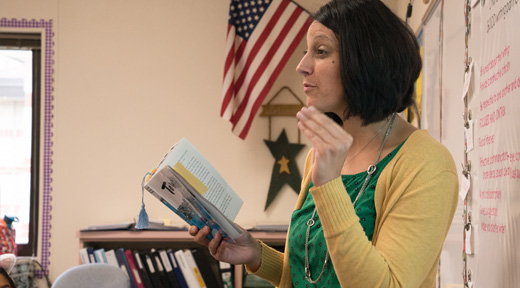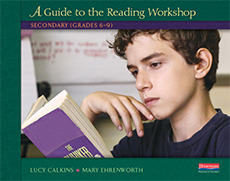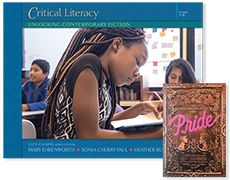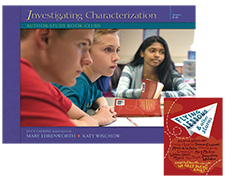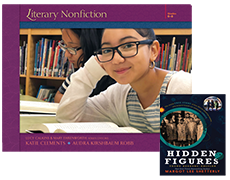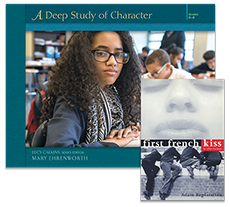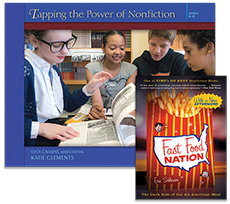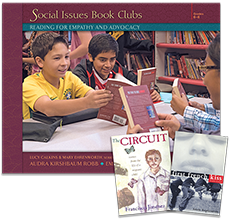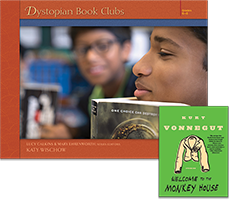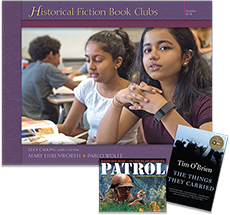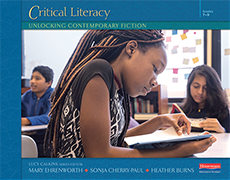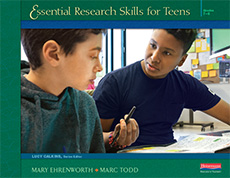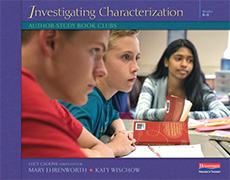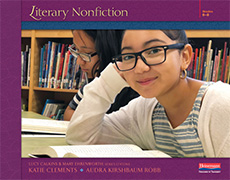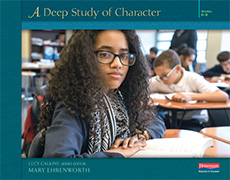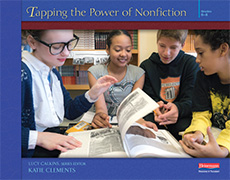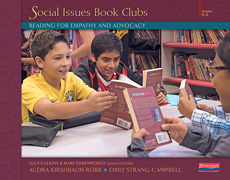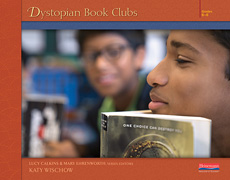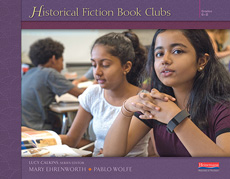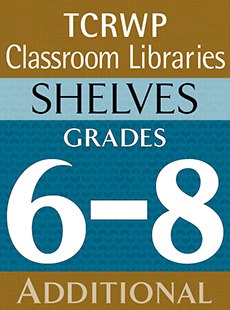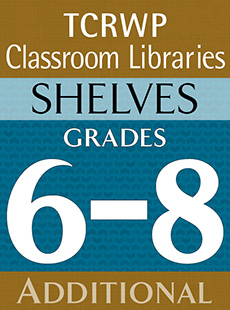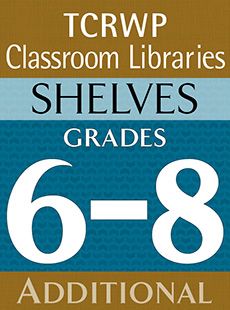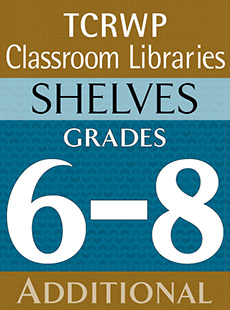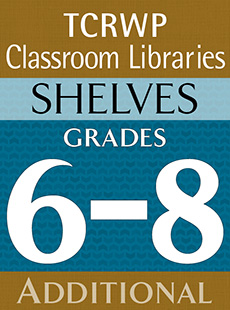Units of Study in Reading
A Workshop Curriculum for Middle School Grades
What Do Our Middle-Grade Readers Need?
We want our middle grades students to become flexible, resilient readers who read for pleasure as well as for academic purposes. We want them to have a toolkit of strategies for dealing with difficulty, and we want them to know when and how to use those strategies.
How Can We Best Meet Those Needs?
To accomplish such ambitious goals, we must reconsider how we think about our classrooms and our curriculum. We can no longer conceive of the curriculum as a few books kids will master. We now recognize the value and importance of teaching a repertoire of skills and strategies to help students be more powerful in any book.
Why is the Reading Workshop So Effective?
The simplicity and predictability of the workshop frees the teacher from constant choreographing so that he or she has time to observe, to listen, to assess, and to teach into specific student needs. For the bulk of time during each day, students read, and as they do, they draw upon an ever-growing repertoire of skills, tools, strategies, and habits.
One Suggestion for Sequencing Units Across Grade Levels
- A Deep Study of Character
- Tapping the Power of Nonfiction
- Social Issues Book Clubs
- Investigating Characterization: Author Studies
- Essential Research Skills for Teens
- Historical Fiction Book Clubs
- Dystopian Book Clubs
- Literary Nonfiction
- Critical Literacy: Unlocking Contemporary Fiction
- Critical Literacy: Unlocking Contemporary Fiction
- Essential Research Skills for Teens
- A Book Club Unit of Choice
In order to provide the greatest flexibility for middle school classrooms, the Units and the Guide are all sold separately. You may choose a different sequence based on your school’s curricular needs, but also keep in mind that there is a layering of complexity across the units that you will want to consider as you plan.
Note: publication of the previously-announced Poetry unit has been postponed indefinitely.
Series Components

Units of Study
There are 9 individual units for middle school reading, each available for separate purchase. Each unit includes all the teaching points, minilessons, conferences, and small group work needed for the reading workshop.

A Guide to the Reading Workshop
Details the architecture of the minilessons, conferences and small-group strategy sessions, and articulates the management techniques needed to support an effective middle school reading workshop. (Available separately for administrators and coaches)

Online Resources
Each unit includes downloadable, printable files for anchor charts (English and Spanish versions) and other charts, read-aloud texts, samples of student work, bands of text complexity, links to videos, tools for learning, and homework assignments.
Frequently Asked Questions (FAQs)
An Introduction to the Middle School Reading Units
Reading Workshop in the Middle Grades
- Why teach reading in middle school? (3:24) Mary Ehrenworth / Transcript PDF
- Why teach reading workshop? (3:26) Mary Ehrenworth / Transcript PDF
- What does the workshop framework look like? (9:49) Mary Ehrenworth / Transcript PDF
- What are some of the ways the units support powerful reading instruction? (8:46) Mary Ehrenworth / Transcript PDF
- Why do the middle school units feature read-alouds? (3:03) Katie Clements / Transcript PDF
Research Base
- What are the conditions needed for readers to thrive? (7:34) Mary Ehrenworth / Transcript PDF
- What does research tell us about the importance of diversity and representation? (3:36) Mary Ehrenworth / Transcript PDF
- What does research say about nonfiction? (3:40) Mary Ehrenworth / Transcript PDF
- How can we use feedback to accelerate achievement? (2:03) Mary Ehrenworth / Transcript PDF
Getting Started/Planning
- What advice do you have for teachers as they begin planning instruction? (8:24) Mary Ehrenworth / Transcript PDF
- What advice do you have for teachers who are new to reading workshop? (3:11) Katie Clements / Transcript PDF
- How can teachers prepare kids who are new to reading workshop? (4:54) Katie Clements / Transcript PDF
- What are some of the ways to sequence units across grade levels in this first year of their publication? (4:32) Mary Ehrenworth / Transcript PDF
- Why are the middle school units sold separately rather than in grade-level sets? (3:53) Katy Wischow / Transcript PDF
- How can teachers make time for both reading and writing? (8:37) Mary Ehrenworth / Transcript PDF
- What should teachers consider when provisioning classroom libraries? Mary Ehrenworth(3:38) / Transcript PDF
- How can administrators best support implementation of the units? (4:06) Mary Ehrenworth / Transcript PDF
Diversity and Social Justice
- How do the units support the promotion of social justice in the classroom? (2:44) Mary Ehrenworth / Transcript PDF
English Learners
Assessment
- How can you assess your middle grades readers? (4:57) Mary Ehrenworth / Transcript PDF
- How can teachers assess if students are moving up levels of complexity in fiction and nonfiction? (3:48) Audra Robb / Transcript PDF
- How can we use feedback to accelerate achievement? (2:03) Mary Ehrenworth / Transcript PDF
- What are some things an administrator should look for when evaluating progress? (3:28) Audra Robb / Transcript PDF
Purchasing Options
Guide to the Reading Workshop
Each Unit with Trade Pack
Purchase Recommendation: In order to provide the greatest flexibility for middle school classrooms the units and guide are all sold separately. For a sequencing suggestion, see above. Choose the bundle with the Trade Book Pack if your library does not already include the mentor texts referenced in the Unit.











